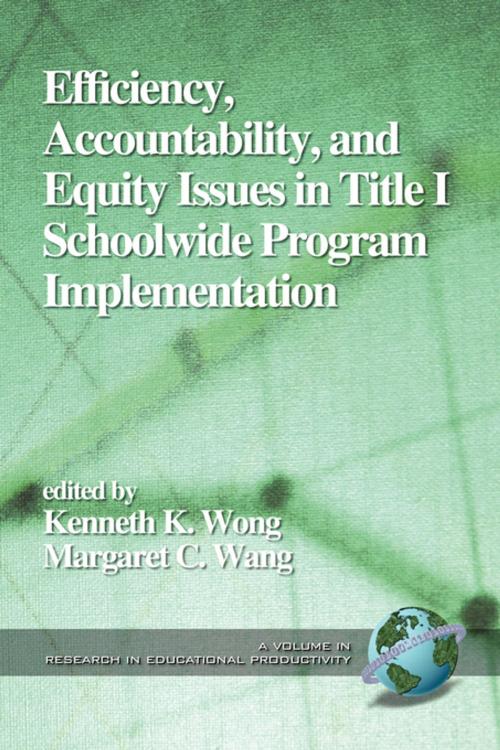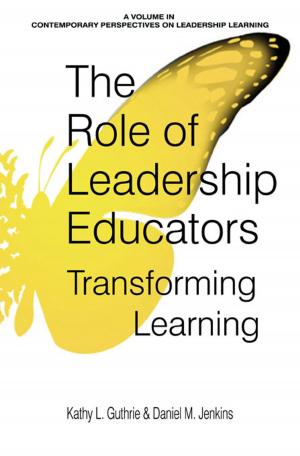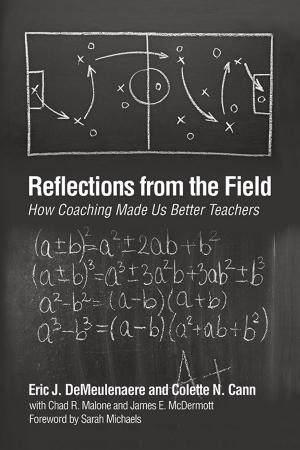Efficiency, Accountability, and Equity
Issues in Title 1 School Wide Program Implementation
Nonfiction, Reference & Language, Education & Teaching, Administration| Author: | ISBN: | 9781607527800 | |
| Publisher: | Information Age Publishing | Publication: | June 1, 2002 |
| Imprint: | Information Age Publishing | Language: | English |
| Author: | |
| ISBN: | 9781607527800 |
| Publisher: | Information Age Publishing |
| Publication: | June 1, 2002 |
| Imprint: | Information Age Publishing |
| Language: | English |
How efficient is Title I, the largest federal educational program in elementary and secondary schools? What is the quality of the Title I services? Has Title I promoted equity in schools among our nation’s lowincome areas? To address these important issues, this volume draws on the proceedings of two national invitational conferences, sponsored by the midAtlantic regional educational laboratory, the Laboratory for Student Success (LSS) at Temple University Center for Research in Human Development and Education in 1999 and 2000. These conferences aim to provide researchbased information on how Title I schoolwide programs affect teaching, learning, and student outcomes and to strengthen costbenefits in Title I program implementation to assist students in highpoverty schools. The focus of the conferences is particularly timely in view of the upcoming Title I reauthorization and the recently enacted federal Comprehensive School Reform Demonstration (CSRD) initiative. Discussion at the conferences focused on enhancing our understanding of accountability, efficiency, and equity issues in Title I. More specifically, researchers at the two conferences: (a) highlighted findings from the National Study of Effective Title I Schoolwide Programs; (b) examined the effects of researchbased comprehensive reform models in highpoverty schools; and (c) addressed crosscutting issues such as the productivity of Title I programs, the use of technologies in the classroom, the role of the state in strengthening Title I programs, cost effectiveness of whole school reform, professional development, reading instruction, and parental involvement, which are important parts of the national educational reform agenda. Leading researchers, policymakers, and practitioners were commissioned to develop preconference papers to serve as a springboard for discussion at the conferences. These papers included an overview of the research base and patterns of governance and conditions that lead to effective implementation of Title I schoolwide programs. The papers were reviewed by conference participants before the conferences and were used to develop nextstep recommendations for advancing the implementation of the Title I schoolwide provision.
How efficient is Title I, the largest federal educational program in elementary and secondary schools? What is the quality of the Title I services? Has Title I promoted equity in schools among our nation’s lowincome areas? To address these important issues, this volume draws on the proceedings of two national invitational conferences, sponsored by the midAtlantic regional educational laboratory, the Laboratory for Student Success (LSS) at Temple University Center for Research in Human Development and Education in 1999 and 2000. These conferences aim to provide researchbased information on how Title I schoolwide programs affect teaching, learning, and student outcomes and to strengthen costbenefits in Title I program implementation to assist students in highpoverty schools. The focus of the conferences is particularly timely in view of the upcoming Title I reauthorization and the recently enacted federal Comprehensive School Reform Demonstration (CSRD) initiative. Discussion at the conferences focused on enhancing our understanding of accountability, efficiency, and equity issues in Title I. More specifically, researchers at the two conferences: (a) highlighted findings from the National Study of Effective Title I Schoolwide Programs; (b) examined the effects of researchbased comprehensive reform models in highpoverty schools; and (c) addressed crosscutting issues such as the productivity of Title I programs, the use of technologies in the classroom, the role of the state in strengthening Title I programs, cost effectiveness of whole school reform, professional development, reading instruction, and parental involvement, which are important parts of the national educational reform agenda. Leading researchers, policymakers, and practitioners were commissioned to develop preconference papers to serve as a springboard for discussion at the conferences. These papers included an overview of the research base and patterns of governance and conditions that lead to effective implementation of Title I schoolwide programs. The papers were reviewed by conference participants before the conferences and were used to develop nextstep recommendations for advancing the implementation of the Title I schoolwide provision.















